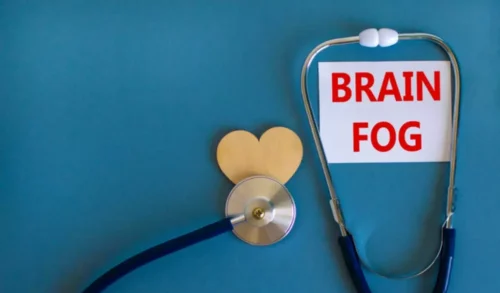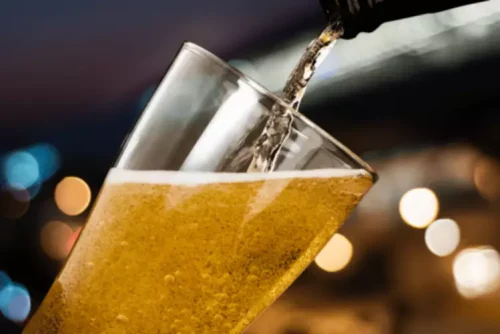
At some point in your recovery, you’ll feel stressed out, whether it’s major stress (like losing a job) or minor stress (like running late for an appointment). When things like this happen, find a sober friend or loved one you can talk to for support. And keep your schedule loose enough that you have time for group meetings and other things that can help you through rough stretches. The answer was more negative consequences of drinking and more positive associations with God and/or spirituality. Interestingly, as of 2019, 73 percent of addiction treatment programs in the United States used a spiritual component,6 the majority referencing God or a Higher Power.
Strategies for Balancing Early Recovery with a Serious Relationship
- You may also experience what is commonly called sobriety fatigue, which refers to the overall exhaustion that may occur as a result of the emotional and physical stress of staying sober.
- How to apply accountability to your life if you’re not a part of a peer-based recovery group?
- It espouses a four-point program based on abstinence, the ultimate goal of which is to help followers to lead more balanced lives.
- This can help you focus on something positive instead of turning to alcohol.
- It’s important to find a treatment program that works for you and to have a strong support system to help you through the recovery process.
- In some cases, there may be medication that can help with a drug or alcohol problem.
They focus on methods that use both Motivational Enhancement Therapy and Cognitive Behavioral Therapy components to engender change of self-destructive behaviors. Exercise can support your recovery by boosting your brain, battling the brain disorder of alcohol use disorder. Check out why person in long-term recovery and counselor, Chrissy Taylor, encourages exercise in early sobriety. Exercise will get your endorphins pumping, reduce cravings, and make you feel better. There are also online treatment programs to help you quit drinking without AA.
Rehabilitation Centers

They provide practical tools that foster resilience against relapses while promoting overall well-being beyond just abstinence from alcohol consumption. So, if you’re looking for an alternative to AA, consider exploring sober living programs. Lastly but importantly for staying sober without AA are self-help approaches like regular workouts and journaling that could assist maintain focus amidst emotionally challenging periods of rehab stages. Though AA may be the most well-known solution for alcohol abuse, it is far from the only one. There are many alternatives to Alcoholics Anonymous, including The Sinclair Method, moderation, cognitive behavioral therapy, therapy, coaching, and Medication Assisted Treatment (MAT).
Seeking Professional Help and Support

Others feel recovery is a private experience, and don’t want to share their struggles with people they don’t know. Still others feel uncomfortable with the label “alcoholic,” or simply want to cut back—not quit completely as AA requires. Read on to learn how to stop drinking without AA—including the many alternatives to Alcoholics Anonymous—and how to decide which approach can help you quit drinking. There are several books and resources that can help individuals stay sober without AA, such as “The Sober Diaries” by Clare Pooley, “This Naked Mind” by Annie Grace, and “The Unexpected Joy of Being Sober” by Catherine Gray.

Loosid, a sober social network, was built with the idea that sober living is often tough. Even though more and more people are realizing that sobriety increases health and happiness, the majority of people still drink as a social activity. With Loosid, you can find new sober friends and even a sober significant other, as well as discover sober events, destinations https://ecosoberhouse.com/ and groups near you. WFS uses 13 acceptance statements to support its “New Life” Program that asks members to focus their energies on positivity over negativity. Efforts are made to accept thoughts and actions as self-destructive, learn how to cope with the emotions and behaviors that are created through alcohol addiction, and then overcome them.
The Ultimate Guide: What Is the Best Definition of Sobriety?
The symptoms involved in PAWS can be a barrier to recovery if you’re not careful. In addition to being able to recognize them, it’s important to know when to seek help. Post-acute withdrawal syndrome (PAWS) involves withdrawal symptoms that persist past the detox period. Such symptoms are often related to mood and may include irritability, anxiety, depression, sleep problems, and fatigue. If you or someone close to you is battling with addiction but isn’t interested in AA, there are other potential solutions that can help them reach a successful recovery. To find a sober coach, search Google for local options or explore coaching databases like Bark and Noomii.
Gather the crew to detox and sweat it out at the many experiences and saunas at World Spa, a must-try spot that’s both massive and gorgeous. You can easily spend a day hopping between the array of spaces like a grand banya, Turkish and Moroccan hammams, Japanese onsens, and sizable swimming pool. If you get hungry or want a fresh juice, just head to the onsite restaurant. Afterwards, cool yourself with a cold plunge or make snowballs in the super cool Snow Room.
Healthy Lifestyle Changes
- Lying to loved ones about what you’re doing and with whom, or feelings of shame about your problem can lead to feelings of isolation.
- In the long run, the research suggests AA could save individuals and the economy millions in health care costs linked to harmful drinking patterns.
- This way, you’ll become increasingly adept at navigating obstacles encountered along the road toward long-term sobriety.
- As a member, you can also access “The Wall,” a forum where members of the community post stories, ideas, questions and discussions about recovery and sobriety.
“There is a commonly held belief that sobriety is the consequence of bad behavior or inability to control our liquor. We don’t see it that way.” WFS provides a gender-specific support system for encouragement and growth for women in recovery. Because one of the underlying premises of recovery is hope, seeing people who have made the journey into long-term recovery inspires others who are beginning getting sober without aa their own journey to recovery. Your journey towards self-improvement begins with a single step, and we’re here to walk alongside you every step of the way. Refuge Recovery is a Buddhist-inspired program that emphasizes mindfulness, compassion, and community. OngoingMidwood, Starts at $99.28Some spas are ideal for recharging solo, but others are just too good to experience it alone.

